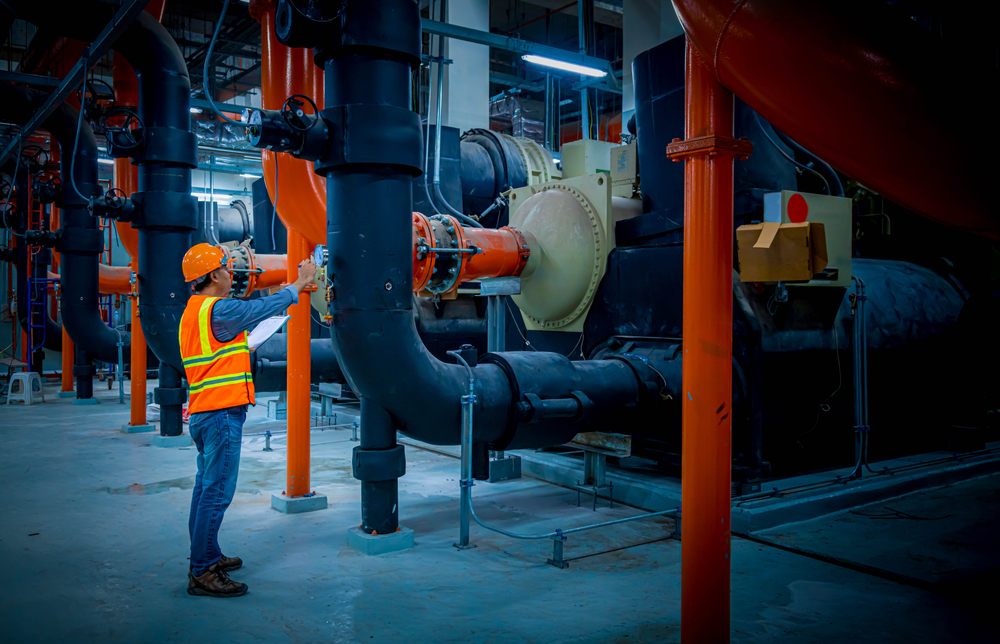Every industrial operation depends on reliable compressed air. We often view it as a utility, but unlike electricity or water, compressed air needs active care. If we overlook maintenance, the results are costly, unsafe, and disruptive. In this post, we explore what can happen when compressed air systems are neglected and what we can do to avoid those risks.
Energy Waste and Rising Costs
One of the biggest risks of poor upkeep is wasted energy. Leaks in the piping or fittings force the system to work harder, and as a result, more electricity is consumed. We may not notice right away, but even a small leak adds up to thousands of dollars each year.
When we maintain seals, filters, and connections, we avoid this hidden drain. For those of us trying to lower operating costs, regular checks on compressed air systems are one of the most effective steps. Investing time in routine upkeep gives us better efficiency and prevents unnecessary strain on our budget.
Equipment Breakdowns
Another risk is sudden breakdowns. Dust, oil, and moisture can collect inside the system when filters are not replaced. That buildup wears down parts faster, causing components like valves or dryers to fail earlier than expected.
By scheduling inspections, we help our equipment last longer. Replacing small parts is far less expensive than losing production time due to a complete failure. Our team knows that avoiding a few hours of maintenance today often saves days of repair work later.
Safety Hazards
Compressed air may feel harmless, but in reality, it can be dangerous. A neglected system puts workers at risk. Corroded tanks or poorly managed pressure can lead to bursts that injure people or damage property.
We also have to consider air quality. If contaminants build up, the air delivered to tools or processes can cause accidents or spoil sensitive products. In industries where cleanliness is critical, this is a serious hazard. Our focus on preventive care is also a commitment to keeping our workplace safe.
Decline in Product Quality
Poor maintenance has a direct effect on product quality. For instance, in painting or food processing, contaminated air introduces particles or moisture that ruin the end result. Customers notice when surfaces are uneven or when products spoil quickly.
We avoid these problems by monitoring air purity. Dryers, filters, and separators play a central role in protecting quality. When we take care of them, we also protect our reputation. Consistency in output always depends on the quality of the compressed air feeding our processes.
Loss of Reliability
Unreliable systems disrupt everything around them. When air supply drops unexpectedly, production lines slow down or stop altogether. That interruption often causes missed deadlines and frustrated clients.
Regular service keeps the system dependable. We can plan around maintenance, but we cannot plan around surprise failures. For long-term stability, building a habit of routine inspections is one of the smartest moves we can make. That is where modern industrial air system solutions provide real value by helping us track performance before issues turn critical.
Increased Environmental Impact
Neglected air systems also have a hidden environmental cost. Wasted energy means more emissions. Leaks, oil carryover, and wasted resources contribute to pollution that could be avoided with basic care.
Our team takes pride in reducing unnecessary waste. Clean, well-maintained equipment uses less energy and avoids releasing contaminants into the air. For industries with sustainability goals, maintenance is not just a cost-saving task. It is also part of our responsibility toward the environment.
Shortened Equipment Life
Every neglected system wears out faster. When we push components beyond their design limits, they lose years of potential life. Instead of running efficiently for decades, neglected compressors often require premature replacement.
This shortens the return on investment and creates unnecessary capital expenses. By extending the lifespan of the system through regular service, we maximize the value of our equipment and reduce downtime for replacements. Care today ensures years of reliable use tomorrow.
Practical Maintenance Practices
The good news is that we can prevent nearly all these risks with simple practices. Checking for leaks with ultrasonic detectors, replacing filters on schedule, draining moisture from tanks, and reviewing system pressure regularly are practical steps.
We also find it useful to keep detailed logs of inspections. Records help us identify patterns and predict future issues. When we make maintenance part of our routine, the system operates more smoothly, and our teams spend less time dealing with emergencies.
When Professional Support Matters
Although many tasks are routine, some situations require expert help. Complex systems often need assessments beyond basic cleaning or tightening. Air audits, for example, reveal where energy is wasted and where adjustments can bring major savings.
This is where connecting with experts becomes useful. If we want to build a stronger plan or need advice on optimizing our setup, reaching out for support is wise. For direct guidance, we can contact us and get the help needed to keep our compressed air system reliable.
FAQs
What happens if we skip filter replacement?
Filters trap dirt, oil, and moisture. If we skip replacement, contaminants pass into the system, causing damage to equipment and reducing product quality.
How often should we check for leaks?
It is best to perform leak checks every few months. Frequent checks reduce wasted energy and prevent pressure drops in the system.
Are moisture drains necessary in every setup?
Yes, moisture drains are important. Without them, water builds up and causes corrosion, equipment damage, and poor air quality.
Can small leaks really increase costs significantly?
Absolutely. Even a small leak can waste thousands of dollars each year in extra energy costs, especially in systems that run constantly.
What is the most common cause of compressor failure?
The most common cause is lack of maintenance, especially failure to replace filters, clean coolers, and manage lubrication. Regular care prevents most failures.

